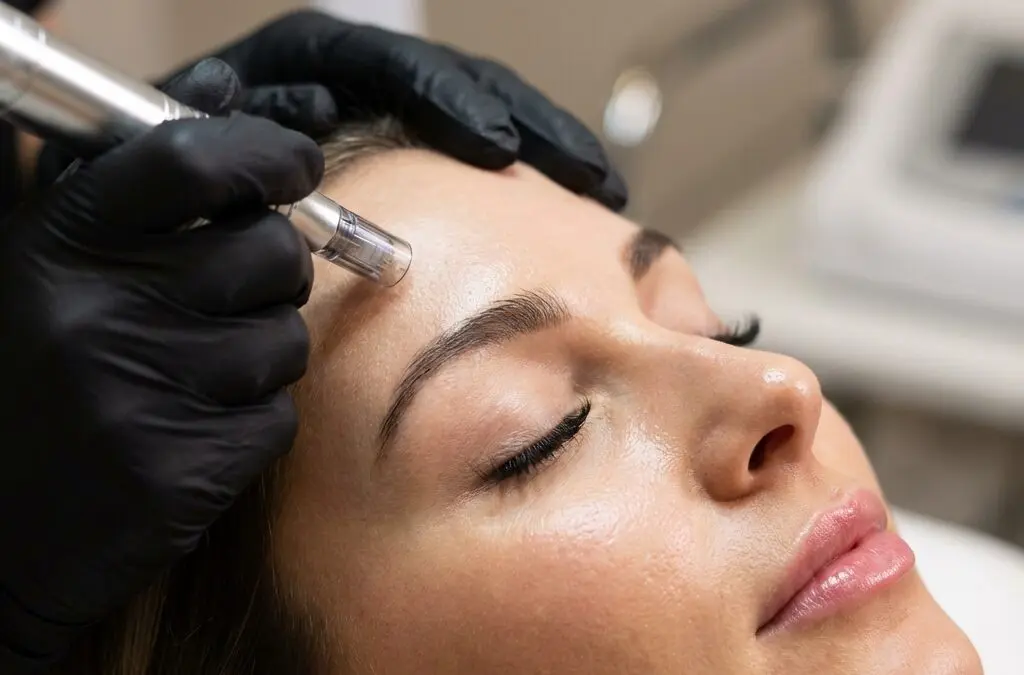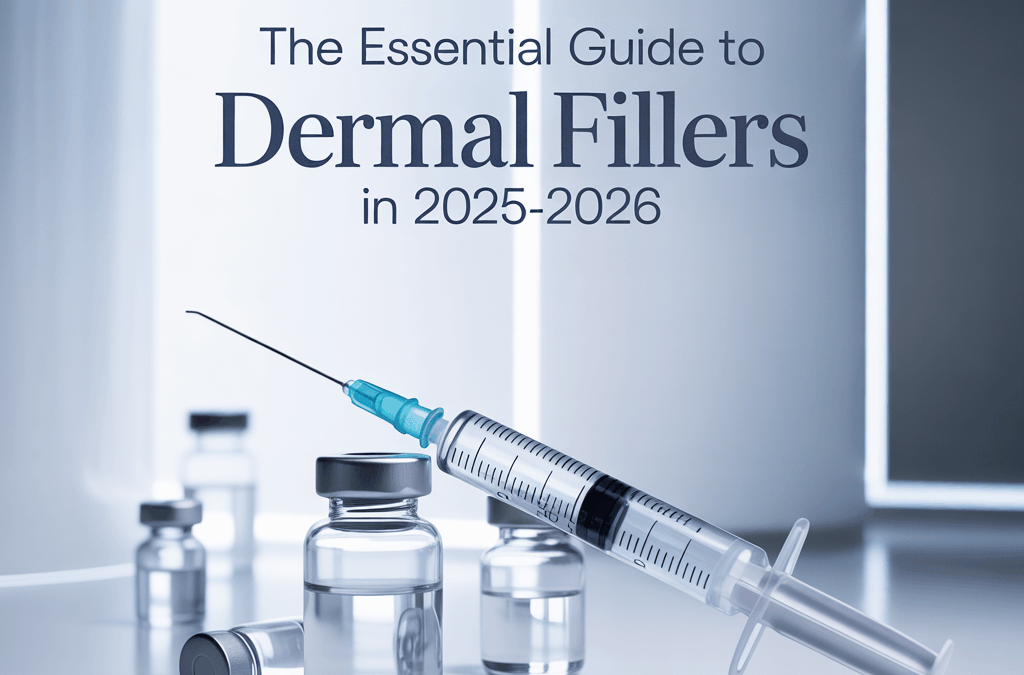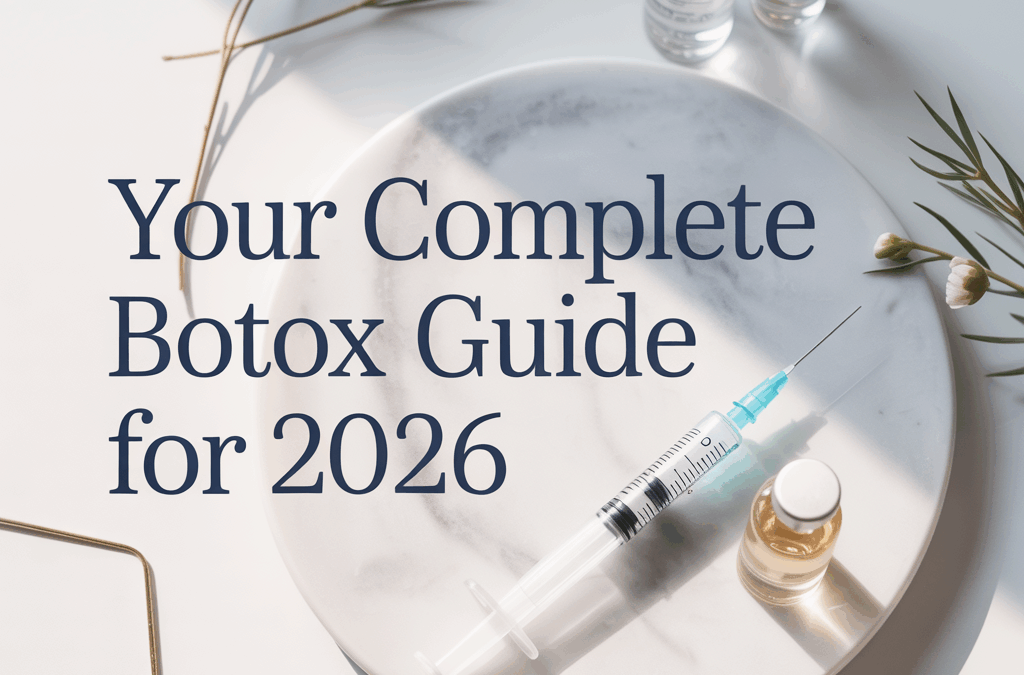Hormones play a crucial role in regulating many bodily functions, and one of the most visible ways they affect us is through our skin. Throughout different life stages—puberty, pregnancy, menopause, and even times of stress—hormonal fluctuations can lead to a variety of skin concerns, including acne, dryness, hyperpigmentation, and loss of elasticity. Understanding how hormonal changes impact the skin can help individuals make informed choices about skincare, diet, and lifestyle adjustments to maintain a healthy complexion.
How Hormones Influence the Skin
 Hormones are chemical messengers that control various bodily processes, including metabolism, immune function, and skin health. The main hormones that affect the skin include:
Hormones are chemical messengers that control various bodily processes, including metabolism, immune function, and skin health. The main hormones that affect the skin include:
- Estrogen – Maintains skin hydration, elasticity, and thickness
- Progesterone – Can increase oil production and influence acne formation
- Testosterone – Stimulates sebum production, which can lead to acne
- Cortisol – The “stress hormone” that can trigger inflammation and breakouts
- Thyroid Hormones – Regulate metabolism and influence skin texture and hydration
Fluctuations in these hormones can result in a wide range of skin conditions, depending on the stage of life an individual is experiencing.
Puberty: The Onset of Hormonal Acne
One of the most common skin changes during puberty is acne. As teenagers experience a surge in androgen hormones (such as testosterone), the sebaceous glands become more active, producing excess oil. This oil, when combined with dead skin cells and bacteria, clogs pores and leads to acne breakouts.
Common Skin Issues During Puberty:
- Increased oiliness
- Acne (blackheads, whiteheads, and cystic acne)
- Enlarged pores
- Sensitivity and inflammation
Skincare Tips for Puberty:
- Use gentle, non-comedogenic cleansers to remove excess oil
- Incorporate salicylic acid or benzoyl peroxide to combat acne
- Avoid over-exfoliating, as it can worsen irritation
- Stay hydrated and maintain a balanced diet to support skin health
Menstrual Cycle: Monthly Skin Changes
Hormonal fluctuations during the menstrual cycle can cause noticeable changes in skin texture and appearance.
- Days 1-14 (Follicular Phase) – Rising estrogen levels contribute to hydrated and plump skin.
- Days 15-28 (Luteal Phase) – Increased progesterone and testosterone may lead to breakouts, oiliness, and skin sensitivity.
- Just Before Menstruation – A drop in estrogen can make skin appear dull and dry.
Skincare Tips During the Menstrual Cycle:
- Use oil-controlling products before and during the luteal phase
- Hydrate and apply antioxidants when estrogen levels drop
- Avoid excessive sugar and dairy, which can exacerbate hormonal acne
Pregnancy: The Glow & the Challenges
Pregnancy leads to dramatic hormonal shifts, particularly in estrogen and progesterone levels. While some women experience the famous “pregnancy glow” due to increased blood circulation and oil production, others may face skin issues like hyperpigmentation and acne.
Common Skin Changes During Pregnancy:
- Melasma (“Pregnancy Mask”) – Dark patches on the face caused by hormonal stimulation of melanin production
- Increased Acne – Progesterone-induced oil production can clog pores
- Stretch Marks – Rapid skin stretching and hormonal fluctuations affect collagen production
- Increased Sensitivity – Skin may react more intensely to certain products
Skincare Tips for Pregnancy:
- Use gentle, fragrance-free skincare products
- Apply sunscreen daily to prevent melasma from worsening
- Hydrate and moisturize to improve skin elasticity
- Consult a dermatologist before using any acne treatments, as some ingredients (like retinoids) should be avoided during pregnancy
Menopause: Loss of Collagen & Dryness

Common Skin Issues During Menopause:
- Increased dryness and loss of moisture
- Thinner, less elastic skin
- Fine lines and deeper wrinkles
- Slower wound healing and increased sensitivity
Skincare Tips for Menopausal Skin:
- Use rich, hydrating moisturizers containing hyaluronic acid and ceramides
- Incorporate retinoids or peptides to stimulate collagen production
- Apply sunscreen daily to protect thinning skin from UV damage
- Stay hydrated and eat foods rich in healthy fats (e.g., avocados, salmon) to support skin elasticity
Stress & Cortisol: The Skin-Stress Connection
Chronic stress triggers the release of cortisol, which can lead to skin inflammation, breakouts, and even premature aging. High cortisol levels stimulate oil production, which can exacerbate acne. Additionally, stress can weaken the skin barrier, making it more susceptible to irritation and environmental damage.
Common Stress-Related Skin Issues:
- Increased acne and breakouts
- Dull, tired-looking skin
- Sensitivity and inflammation
- Slower healing of wounds or blemishes
Ways to Reduce Stress for Healthier Skin:
- Practice mindfulness, meditation, or yoga
- Get enough sleep to allow skin to repair itself
- Exercise regularly to improve blood circulation
- Maintain a balanced diet rich in antioxidants
Thyroid Hormones & Skin Health
The thyroid gland regulates metabolism, and its hormones play a role in skin hydration and renewal. Both hyperthyroidism (overactive thyroid) and hypothyroidism (underactive thyroid) can lead to skin issues.
Effects of Thyroid Imbalances on Skin:
- Hypothyroidism – Dry, rough, and pale skin; hair thinning
- Hyperthyroidism – Increased sweating, warm and flushed skin
Skincare Tips for Thyroid-Related Skin Issues:
- Use rich, emollient moisturizers for dryness
- Avoid harsh exfoliants if experiencing sensitivity
- Consult a doctor for proper thyroid management
Hormonal changes are an inevitable part of life, affecting the skin in multiple ways. From the acne-prone teenage years to the dryness and thinning of menopausal skin, understanding how hormones influence skin health can help individuals take proactive steps to maintain their skin’s vitality.
Adapting skincare routines to match hormonal fluctuations, eating a nutrient-rich diet, staying hydrated, and managing stress effectively can all contribute to healthier skin. If severe skin concerns arise, consulting a dermatologist or healthcare professional can provide personalized guidance and treatment options.
By recognizing the intricate relationship between hormones and skin, you can work with—not against—your body to achieve a radiant and balanced complexion at any age.

Microneedling Explained: Your 2026 Resource
Microneedling has become one of the most popular skin treatments for good reason: it's effective, versatile, and works for almost everyone. As we move into 2026, this treatment continues to evolve...

The Essential Guide to Dermal Fillers in 2025-2026
Dermal fillers have revolutionized aesthetic medicine, offering a way to restore youthful volume, smooth wrinkles, and enhance facial contours without surgery. As we move into 2026, the filler...

Your Complete Botox Guide for 2026
Botox has come a long way since its early days, and 2026 brings some exciting developments that make treatments more personalized, natural-looking, and effective than ever before. Whether you're...

Best Treatments for Neck Rejuvenation
Let's be honest – when it comes to aging, the neck is often the telltale sign that gives away our true age. While we diligently apply sunscreen and anti-aging creams to our faces, the neck area...

How Hormonal Changes Affect Your Skin at Every Age
Your skin is like a mirror reflecting what's happening inside your body – and nowhere is this more apparent than with hormonal changes. From your teenage years through menopause and beyond,...

Top Mistakes People Make After Fillers
Getting dermal fillers can be an exciting step toward achieving your aesthetic goals, but what happens after you leave our office is just as important as the treatment itself. Unfortunately, many...

Advancements in Non-Invasive Body Contouring
The landscape of body contouring has transformed dramatically in recent years, with Arizona leading the charge in offering cutting-edge, non-invasive technologies that deliver remarkable results...

